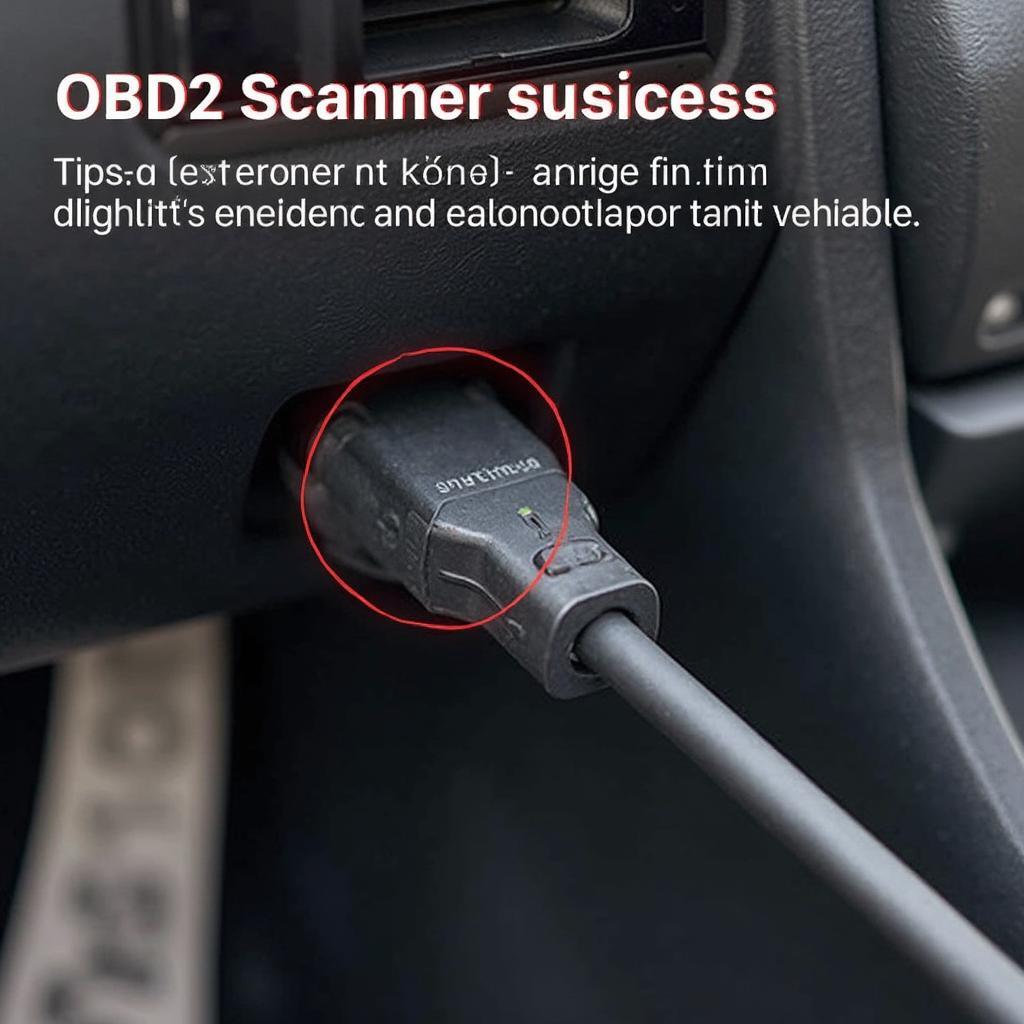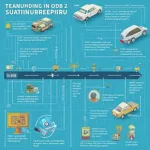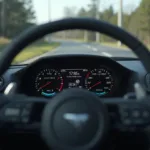An OBD2 scanner reading the ECM slowly can be frustrating, especially when you’re trying to diagnose a car problem quickly. This article will delve into the reasons why your OBD2 scanner might be communicating slowly with your car’s ECM (Engine Control Module), and provide practical solutions to get you back on track.
Why is My OBD2 Scanner Slow to Read the ECM?
Several factors can contribute to a slow connection between your OBD2 scanner and your vehicle’s ECM. Understanding these factors is crucial to resolving the issue effectively.
Faulty OBD2 Scanner or Cable
Sometimes, the problem isn’t with your car, but with the diagnostic tool itself. A damaged OBD2 scanner or a frayed or loose cable can significantly impede communication.
Vehicle’s Electrical System Issues
Problems within your car’s electrical system, such as a low battery voltage or a poor ground connection, can interfere with the OBD2 scanner’s ability to communicate effectively with the ECM.
ECM Software Issues
In some cases, outdated or corrupted software within the ECM itself can be the culprit. This can cause delays in data retrieval and processing.
Compatibility Issues
While OBD2 is a standardized system, there can still be compatibility issues between certain scanners and specific vehicle makes and models, especially older ones.
 OBD2 Scanner Cable Connected to Car's Diagnostic Port
OBD2 Scanner Cable Connected to Car's Diagnostic Port
Troubleshooting a Slow OBD2 Scanner
Here’s a step-by-step guide to help you diagnose and fix the problem:
- Check the OBD2 Scanner and Cable: Inspect the scanner for any physical damage and ensure the cable is securely connected to both the scanner and the vehicle’s diagnostic port. Try a different cable if possible.
- Verify Vehicle’s Battery Voltage: A low battery can disrupt communication. Ensure your car’s battery is properly charged and providing sufficient voltage.
- Check for Grounding Issues: A poor ground connection can also hinder communication. Inspect the ground connections in your car and ensure they’re clean and tight.
- Test with Another OBD2 Scanner: If you have access to another scanner, try using it on your vehicle. If the second scanner works fine, the problem likely lies with your original scanner.
- Consult Your Vehicle’s Repair Manual: Your car’s repair manual might contain specific troubleshooting steps for OBD2 communication issues.
- Update ECM Software (if applicable): Check if there are any software updates available for your vehicle’s ECM. Updating the software might resolve compatibility or communication problems.
How to Improve OBD2 Scanner Performance
Beyond troubleshooting slow connections, here are a few tips to optimize your OBD2 scanner’s performance:
- Use a High-Quality OBD2 Scanner: Investing in a reliable and reputable scanner can significantly improve communication speed and accuracy.
- Keep Your Scanner’s Software Updated: Regularly update your scanner’s software to ensure compatibility with the latest vehicle models and to access new features.
- Understand Your Vehicle’s Specifics: Familiarize yourself with your car’s OBD2 system and any potential quirks or compatibility issues.
“A quality OBD2 scanner is an essential tool for any car enthusiast or professional mechanic. It’s like having a direct line to your car’s brain,” says Alex Johnson, Lead Automotive Diagnostic Technician at AutoTech Solutions. “Investing in a good scanner and understanding its capabilities can save you time and money in the long run.”
Conclusion
A slow OBD2 scanner can be a nuisance, but with a little troubleshooting, you can usually pinpoint and resolve the issue. By following the steps outlined above, you can improve communication between your scanner and your car’s ECM, allowing you to quickly and efficiently diagnose any problems. Remember, a fast and reliable OBD2 scanner is essential for effective vehicle diagnostics.
FAQ
- Why is my OBD2 scanner not connecting at all? This could be due to a blown fuse, a faulty OBD2 port, or a problem with the scanner itself.
- Can a bad battery cause OBD2 communication problems? Yes, a low battery voltage can disrupt the communication between the scanner and the ECM.
- How do I know if my OBD2 scanner is compatible with my car? Check the scanner’s documentation or the manufacturer’s website for compatibility information.
- Is it safe to update my car’s ECM software myself? While it’s possible to do it yourself, it’s often recommended to have a qualified technician perform ECM updates.
- What should I do if I’ve tried everything and my OBD2 scanner is still slow? Consult a professional automotive diagnostician for further assistance.
- Does the length of the OBD2 cable affect communication speed? Generally, no, unless the cable is excessively long or damaged.
- Can interference from other electronic devices affect OBD2 communication? In some rare cases, yes.
For further assistance, please contact us via WhatsApp: +1(641)206-8880, Email: [email protected] or visit us at 789 Elm Street, San Francisco, CA 94102, USA. We have a 24/7 customer support team ready to help.

